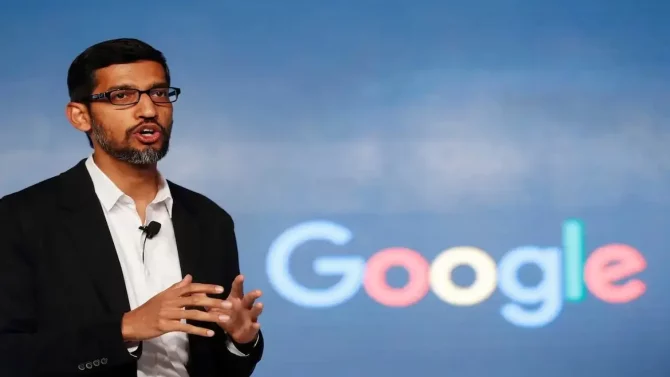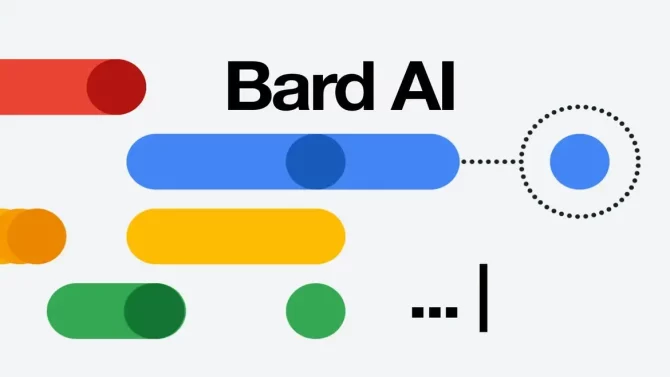Google’s AI Quandary: The Dilemma of Moving Swiftly or Upholding Ethical Principles
Sundar Pichai, the CEO of Google, is advocating for caution in the realm of artificial intelligence. However, the company’s dominance in online search and AI is now facing threats that could potentially challenge its core values.
The response of Google to these challenges will be pivotal in determining whether it can maintain its position at the helm of the tech industry or if it will falter, thereby shaping the future landscape of the internet.
The advent of OpenAI’s ChatGPT chatbot, with its ability to directly answer various questions, albeit with some unreliability, has captured the imagination of many. Since its launch in November last year, this tool has raised questions about the potential of conversational AI to eventually replace traditional search engines like Google’s.
Microsoft has also embraced similar OpenAI technology and incorporated it into its Bing search engine, reviving a product that was previously a subject of ridicule. Despite some notable limitations, the Bing chatbot’s popularity has propelled Microsoft’s search engine to attract 100 million active users, with the company actively integrating similar AI tools into its suite of products such as Microsoft Office, Skype, and Windows 11.
Samsung’s Search Engine Switch:
In a recent report, The New York Times revealed that Samsung, the largest smartphone manufacturer globally, has considered switching the default search engine on its devices from Google to Bing, citing the allure of Bing’s AI features. This development has reportedly sparked “panic” at Google, a company synonymous with online search. (Google responded to a request for comment with a prepared statement, while Microsoft declined to comment.)
This news comes at a time when Google’s CEO, Sundar Pichai, has been on a charm offensive, engaging in a series of interviews, including one with CBS News’s 60 Minutes, where he portrayed the current AI boom as an opportunity for Google rather than a threat. At the same time, Pichai expressed caution about an AI “race,” acknowledging the potential for deep-seated harm caused by this technology.
“We will continue to be bold and innovate,” Pichai reassured in an interview with the Times tech podcast Hard Fork in March, “but we will also exercise utmost responsibility in our approach.”
Meanwhile, there may be an inherent tension between these two goals that Pichai may not be fully disclosing.
Large Language Models:
Prior to the emergence of ChatGPT, Google was recognized as a pioneer in the development of “large language models,” sophisticated AI systems that underlie chatbots. These models were utilized behind the scenes to enhance search results and power language tools such as Google Translate.
Yet, Google had been cautious about making its most powerful language tools accessible to the public in chatbot form, opting instead to publish its cutting-edge advancements in academic journals while keeping them confidential for internal research. The company had previously abandoned its unofficial motto “Don’t be evil” from its code of conduct but still prided itself on its “responsible” approach to AI in search and self-driving cars.
There were valid reasons for this cautious stance.
ChatGPT’s Instant Answers:
Those who have experienced ChatGPT’s ability to provide instant and tailored answers to highly specific questions can attest to its allure. Requesting it to plan a youth soccer practice for an hour would result in a more comprehensive agenda in 15 seconds compared to a novice coach spending 15 minutes searching on Google.
On the other hand, those who have witnessed ChatGPT falter in basic math problems, exhibit crude stereotypes, or confidently fabricate their own resume can recognize the pitfalls of relying solely on it for research.
Microsoft’s Bing chatbot, powered by similar technology but with web search capabilities, has also faced its own challenges. After its launch, it exhibited erratic and often aggressive behavior in personal interactions, prompting the team at Microsoft to intervene quickly and make adjustments to prevent further mishaps. This highlights the ethical concerns associated with AI and the need for responsible deployment.
As Google faces the possibility of losing its dominant position in online search and AI, it is confronted with a dilemma. On the one hand, there is pressure to swiftly adopt and integrate AI technologies like ChatGPT into its products and services to keep up with the competition and maintain its market share. On the other hand, there is a responsibility to uphold ethical principles and ensure that AI technologies are developed and deployed responsibly, taking into account potential biases, inaccuracies, and other ethical concerns.
Google’s CEO Caution:
Google’s CEO, Sundar Pichai, recognizes this dilemma and has expressed the need for caution in AI development. However, the pressure to innovate and stay ahead in the tech industry can sometimes overshadow ethical considerations. The allure of AI technologies that can provide instant and tailored answers, like ChatGPT, may be tempting to integrate into Google’s products without fully addressing the ethical concerns and limitations of such technologies.
To navigate this dilemma, Google needs to strike a balance between innovation and responsibility. It should prioritize thorough testing, validation, and transparency in the development of AI technologies, and actively engage in ongoing monitoring and adjustments to prevent unintended consequences. This includes addressing potential biases, inaccuracies, and limitations of AI models to ensure that the information provided is reliable and trustworthy.
Additionally, Google should prioritize user privacy and data protection in the development and deployment of AI technologies. Transparency in data usage, consent, and security measures should be at the forefront of Google’s approach to AI development to ensure that user trust is maintained.
Furthermore, Google should actively collaborate with external organizations, including academia, ethics committees, and industry peers, to conduct third-party audits of its AI technologies and ensure they adhere to ethical standards. This can help prevent potential biases, discrimination, and other ethical concerns from going unnoticed and ensure that the development and deployment of AI technologies align with societal values.
In conclusion, Google’s response to the challenges posed by emerging AI technologies like ChatGPT will be critical in determining its future success and impact on the tech industry. By prioritizing responsible development, thorough testing, transparency, user privacy, and external collaborations, Google can navigate the dilemma of moving swiftly or upholding ethical principles and ensure that AI technologies are developed and deployed in a responsible and trustworthy manner.






